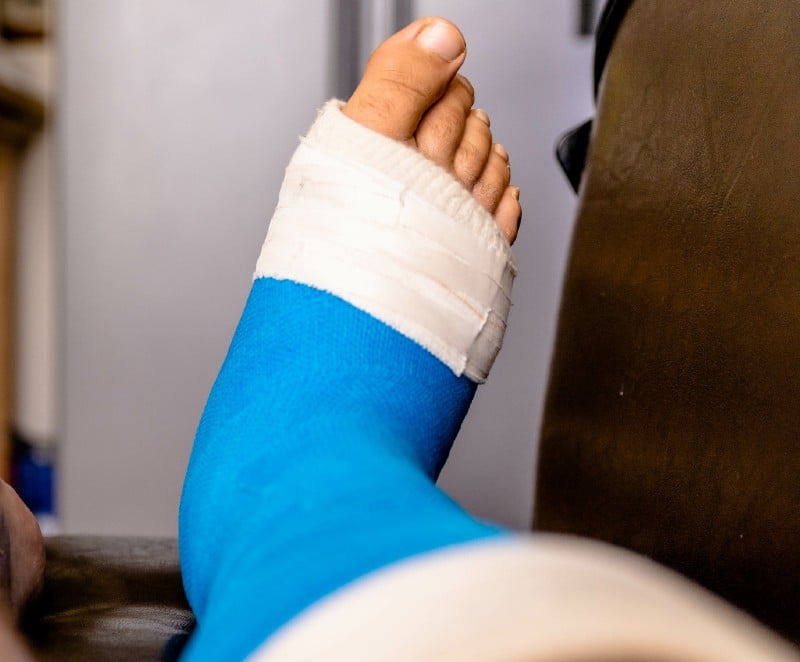Recover From Surgery Faster
Foot and ankle surgery can be life-changing — whether you’re recovering from an injury, correcting a deformity, or addressing chronic pain. However, your recovery process plays an equally important role in ensuring long-term success. With the right care, patience, and expert guidance, you can heal faster and get back on your feet with confidence.
Understanding the Importance of Proper Post-Surgical Care
Recovery doesn’t end once you leave the operating room. How well you care for your foot and ankle afterward directly affects your healing time, comfort, and final outcome.
Common goals after surgery include:
- Reducing pain and swelling
- Preventing infection or complications
- Regaining strength and mobility
- Protecting surgical repairs from reinjury
Your podiatrist will provide a personalized recovery plan, but these essential tips can help you stay on track.

1. Follow Your Surgeon’s Instructions Carefully
Your podiatric surgeon’s post-operative instructions are your roadmap to recovery. These may include how to manage your bandages, medications, and activity level.
Ignoring these guidelines can slow healing or even cause setbacks. Always:
- Keep your dressing clean and dry
- Take prescribed medications as directed
- Attend all follow-up appointments
If something feels off — like increased pain, redness, or drainage — contact your podiatrist immediately.
2. Elevate and Rest to Reduce Swelling
Swelling is a normal part of healing, but too much can delay recovery. Keep your foot elevated above heart level for the first few days after surgery and use pillows or a wedge cushion for comfort.
Refrain from putting weight on the affected foot until your doctor advises that it’s safe to do so. Rest is not a setback — it’s part of healing smarter.
3. Use Ice Therapy Wisely
Applying ice can help manage pain and swelling. Use an ice pack for 15–20 minutes at a time, several times a day.
Always protect your skin by wrapping the ice in a towel, and never apply it directly to your incision area.
4. Maintain a Healthy Diet and Stay Hydrated
Your body requires proper nutrients to promote tissue repair and support infection prevention. Focus on foods rich in:
- Protein (chicken, fish, beans) for tissue repair
- Vitamin C and Zinc for wound healing
- Fiber and water to prevent constipation from pain medications
Avoid smoking and limit alcohol — both can slow down your body’s natural healing process.
5. Keep Moving — Gradually
Once your podiatrist clears you for light movement, gentle exercises and physical therapy can improve circulation and flexibility.
Simple range-of-motion exercises and stretching (as advised by your doctor) can prevent stiffness and help restore strength. Never rush this process — gradual progress ensures long-term stability and mobility.
6. Wear Supportive Footwear or Orthotics
When it’s time to transition out of your surgical boot, wear supportive shoes that provide cushioning and stability. Your podiatrist may recommend custom orthotics to protect your healing foot and prevent re-injury.
7. Watch for Signs of Complications
Stay alert for symptoms that may indicate infection or poor healing, such as:
- Increasing pain or swelling
- Redness or warmth around the incision
- Drainage or unusual odor
- Fever or chills
Prompt medical attention can prevent more serious complications and keep your recovery on track.
8. Stay Positive and Patient
Recovery after foot and ankle surgery can take weeks or even months. It’s normal to feel frustrated at times, but staying patient and positive makes a big difference. Celebrate small milestones — every step forward counts.
When to Call Your Podiatrist
If you experience severe pain, numbness, or any unexpected symptoms, reach out to your podiatrist right away. Regular follow-ups are essential for tracking progress and adjusting your recovery plan as needed.
Take the First Step Toward a Smooth Recovery
At Richardson Podiatry Center, our team is committed to guiding you through every step of your healing journey. From personalized post-surgical care to rehabilitation support, we help you recover safely and return to doing what you love — pain-free.
Schedule your post-surgical consultation today and let our specialists help you get back on your feet faster.
